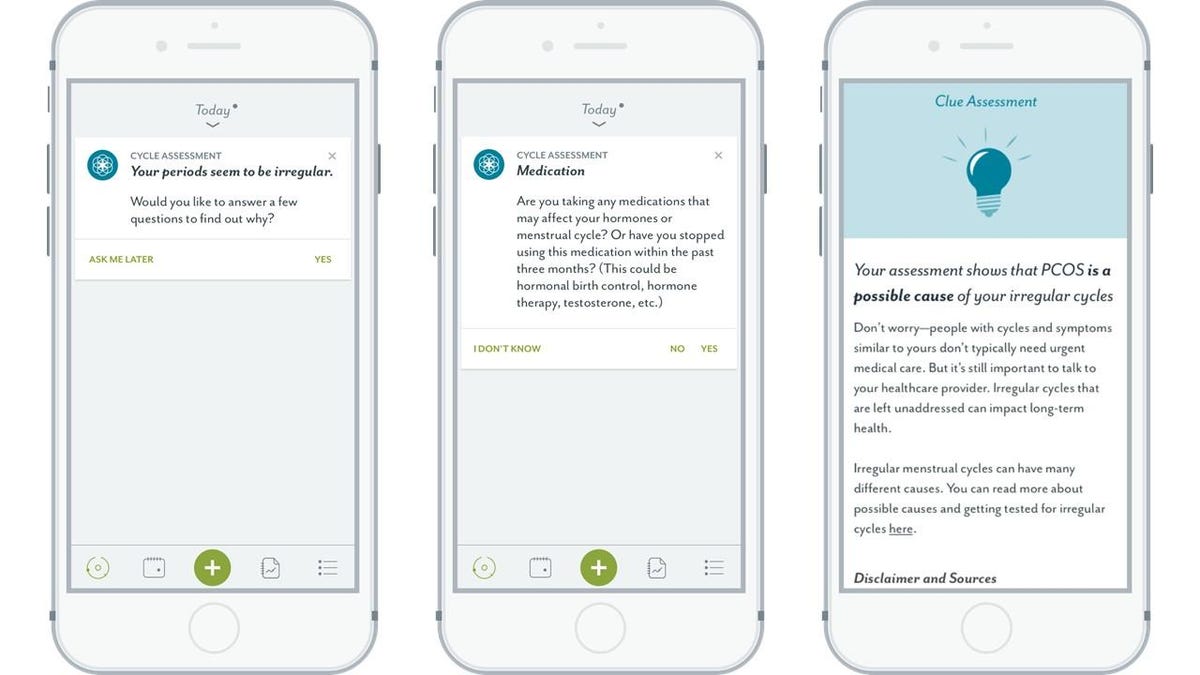Do you have PCOS? This app can help you find out
Period-tracking app Clue can now help uncover your risk of polycystic ovary syndrome.

If your cycles are irregular, Clue will prompt you to access the new feature. Then you'll complete a short questionnaire about your habits and medical history, and Clue will provide a report.
Clue, one of the most popular apps that tracks menstruation cycles, can now help you discover your risk for polycystic ovary syndrome (PCOS). The new feature -- aptly named Irregular Cycles -- identifies if you have clinically irregular cycles and then provides you with a personalized questionnaire that asks more about your cycle, symptoms and lifestyle habits.
PCOS is a common yet underdiagnosed condition that involves irregular menstrual cycles, higher levels of androgen hormones (such as testosterone) and small ovarian cysts. Symptoms often include weight gain, acne and mood swings.
A clinically irregular cycle is defined as one where the cycles in the last six months are "out of range," according to Clue. This can mean that you experience unusually frequent, infrequent or prolonged periods.
After you complete Clue's questionnaire, the app produces an assessment and doctor's report, which essentially tells you how likely you are to have PCOS, based on your responses and cycle-tracking history. Note that Clue does not make diagnoses, but you can share the report with your physician or gynecologist, who can determine if you have PCOS and how to treat it.
The Irregular Cycles feature utilizes a dynamic Bayesian network, a type of statistical model that can predict the likelihood of cause-and-effect. In this case, the model looks at the probability of PSOC causing certain symptoms. The questionnaire asks up to 20 questions, but most people only need to complete between 6 and 10 (the model decides the most impactful questions to ask based on each person's unique data).
Not everyone will get access to the Irregular Cycles feature -- only those who log clinically irregular cycles and who aren't on hormonal birth control -- will be prompted to access the feature.
Clue's new feature is another promising step in using technology to identify previously unknown health conditions, much like Apple Watch's irregular heartbeat feature.

